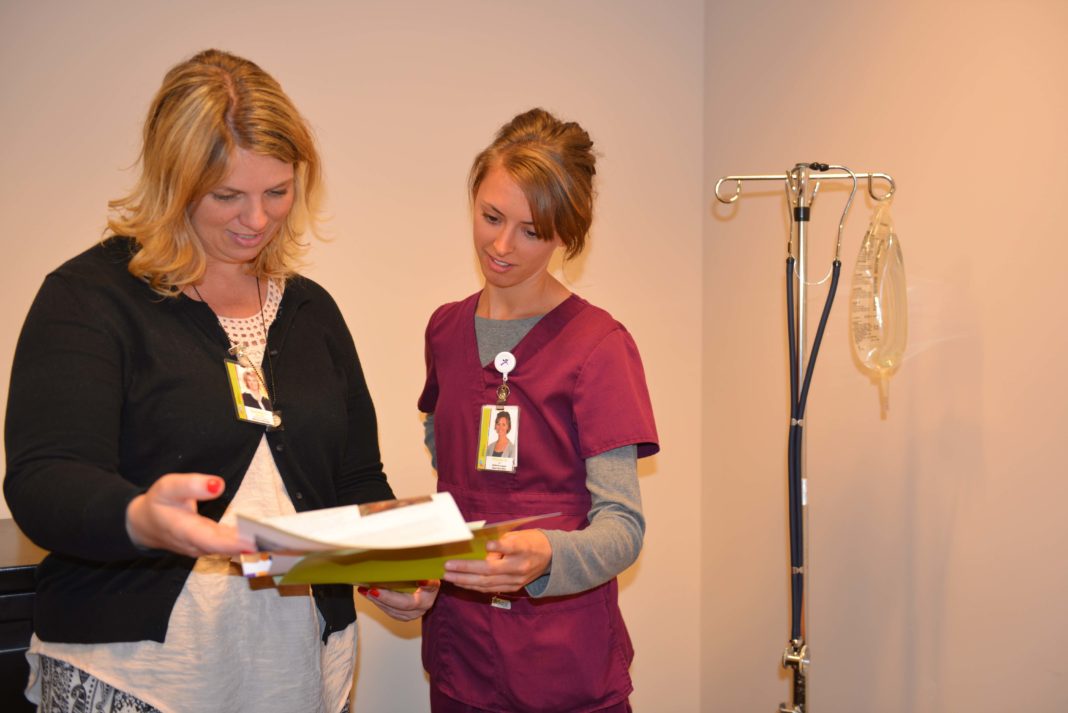Karletta Crawford recalls her college experience with home care nursing: “I went to an elderly man’s home, set up his medication box and played a game of cards.” These days, she acknowledges, most nursing programs include more training in home care. Still, it’s not necessarily top of mind for many nursing students.
The need for home care nursing is acute, Crawford said, “In the last 10 years, according to one study, patient tracheostomies have doubled. If we’ve doubled that, we’ve doubled the need for home care nurses.”
Home care nurses require a different mindset from their hospital-based colleagues, Crawford said. “A hospital is a controlled environment. It’s very clean, it’s temperature-controlled. Homes aren’t controlled environments. In the hospital, there are more advanced nurses to bounce ideas off of. Ours are out there by themselves, saving lives.”
Finding nurses who can deal with that level of independence requires “a pretty stringent process for hiring,” Crawford said. “In interviews, we do a lot of situations. ‘What would you do in this kind of a situation?'” Crawford said critical thinking skills are at least as important as they are for hospital nursing. In addition, she said, they look at personality. “They’ll spend eight to ten hours in a person’s home. They get to be part of the family to some extent. We have nurses who have been with patients their entire life–twenty or thirty years. That takes a certain type of a nurse.”
It may also take a certain type of company. Pediatric Home Service was named Top Midsize Workplace by the Star Tribune in 2015.
Crawford said home care nursing is not paid as highly as work in hospital settings. “That’s a driving factor. We’re working to see if we can get higher reimbursement. We’re trying to work on the raise so it goes directly to the nurses,” she said.
The trade-off, Crawford said, is that “the hospital is more fast-paced. Not that you can’t have busy shifts in home care nursing, but you can focus on one patient, focus on their needs.”
In addition, Crawford said, while it’s called “home care,” the nurse’s duties might include a trip to Valley Fair or a vacation week in Wisconsin as well as attending school with the patient. “The home care nurse is able to be in community with the family. We see the patients when they’re doing well. They need nursing care, but we’re able to enjoy life with them as opposed to being in the sick, weak, vulnerable state. Swimming lessons, a doctor’s appointment–they’re there to go where the family goes with the patient.”
Some nurses use home care as an entry-level step to get the experience required by hospitals. On the other hand, Crawford said, “We have had people who have been in the hospital for twenty years and burned out. We would love to have retired nurses come in. We’re not ruling anyone out. We’re interested in anyone.”
How can people find out if home care is the job for them? Crawford said, “Our website is fantastic–we have videos and testimonials. We’ve had people who aren’t too sure who just want to call in before they interview. We prefer that people ask a lot of questions. Our owner is adamant: We have people available to talk to people. Our HR department is really good. They can answer a lot of questions. I’m open to any questions at any time. I can put them in touch with a home care nurse. They’re the ones doing the work.”











